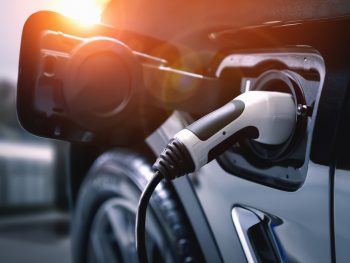End ICE car/van sales by 2035 and expand EV charging, International Energy Agency says
Governments across the globe have been urged to end the sale of petrol and diesel cars and vans by 2035 and massively ramp-up EV charging, amid warnings on energy security.
A new report from the International Energy Agency (IEA) says we are in the midst of the “first truly global energy crisis”, with devastating knock-on consequences across the world economy, especially in developing countries. It cautions that only by speeding up the transition to clean sustainable energy can we achieve lasting energy security.
But the intergovernmental organisation, established in 1974, also warns that far greater international cooperation is needed to get the world on track to meet its climate commitments.
Its first annual Breakthrough Agenda Report, requested by 45 world leaders, delivers a progress report on the actions needed to deliver on the historic clean technology commitment by governments representing two-thirds of the global economy.
The report looks at five key sectors, including power, road transport, steel, hydrogen and agriculture.
For transport, it has two main tenets:
- Agree a common definition and target dates by which all new road vehicles will be net zero, targeting 2035 for cars and vans and the 2040s for heavy duty vehicles. This could see cost parity between ZEVs and ICE vehicles reached several years earlier.
- Mobilise investment in charging infrastructure, including prioritised assistance for developing countries and harmonise international charging standards to drive investment and accelerate adoption globally. Public charging infrastructure needs to increase 10-fold by 2030.
Alongside aligned target dates for zero-emission vehicles, the research also calls for countries and manufacturers to shift investment more quickly towards the new technologies and accelerate their cost reduction.
And it calls for standards to boost the recyclability of batteries and supercharging research into alternative chemistries for batteries to reduce reliance on precious metals, such as cobalt and lithium.
Other recommendations include work to demonstrate and test flexible low-carbon power systems to expand the range of solutions and increase the share of variable renewables. The report also calls for the creation of new cross-border supergrids this decade to increase trade in low-carbon power, reduce emissions, improve energy security and enhance system flexibility.
IEA executive director Fatih Birol said: “Through international collaboration, we can make the transition quicker, cheaper and easier for everyone – on the back of faster innovation, greater economies of scale, bigger incentives to invest, level playing fields and benefits that are shared across all parts of society. Without this collaboration, the transition to net zero emissions will be much more challenging and could be delayed by decades.”
The report has been welcomed by EV charging network ChargePoint, which said it showed the importance of international EV goals and why improving charging infrastructure is necessary to match increased demand.
Currently, the UK plans to start phasing out the sale of new petrol and diesel cars by 2030, while the EU plans for a 2035 deadline for zero-emissions cars and vans. More recently, California made history by becoming the first US state to ban the sale of new gas-powered vehicles by 2035. But many regions and governments are yet to announce any plans.
Tanya Sinclair, senior policy director, Europe at ChargePoint, said: “Whilst there are already bans in place to end the sale of new petrol and diesel cars by 2030 in the UK, it’s promising to see similar global proposals from the International Energy Agency today.
“However, to ensure a smooth transition towards mass global electric vehicle adoption, the focus also needs to be on developing and implementing the appropriate infrastructure to match the increased demand. Governments and large organisations around the world need to be thinking about the charging experience, scalability in terms of design, the quality of the product and delivering high-class service.”


